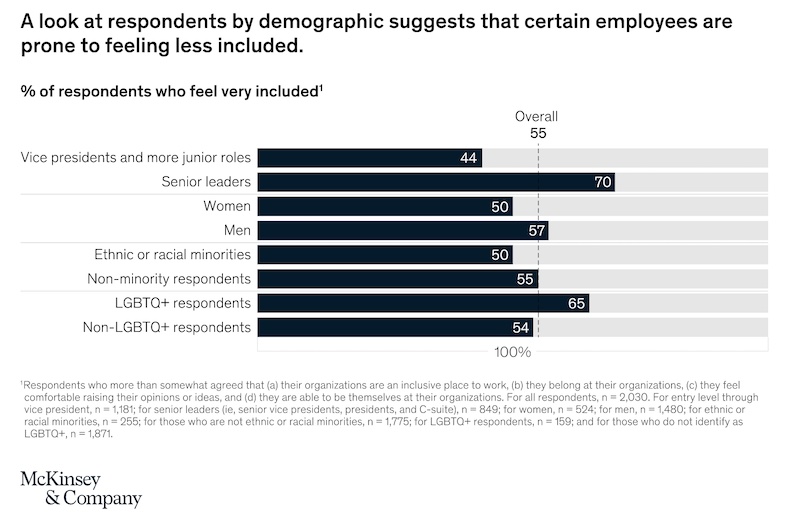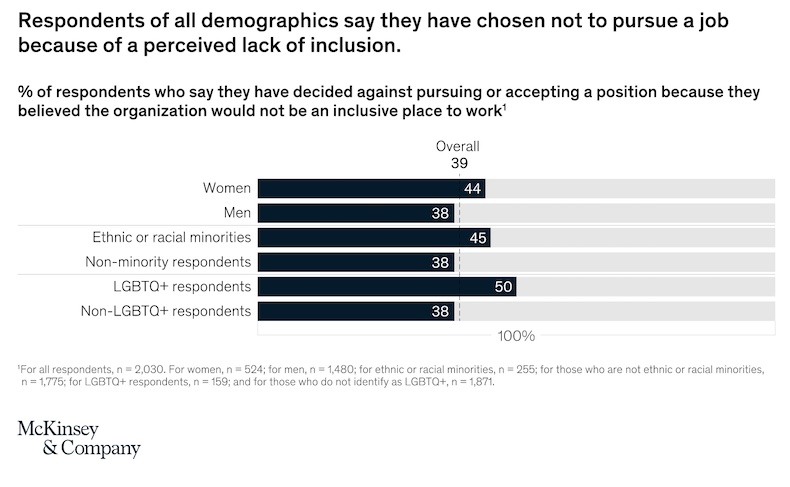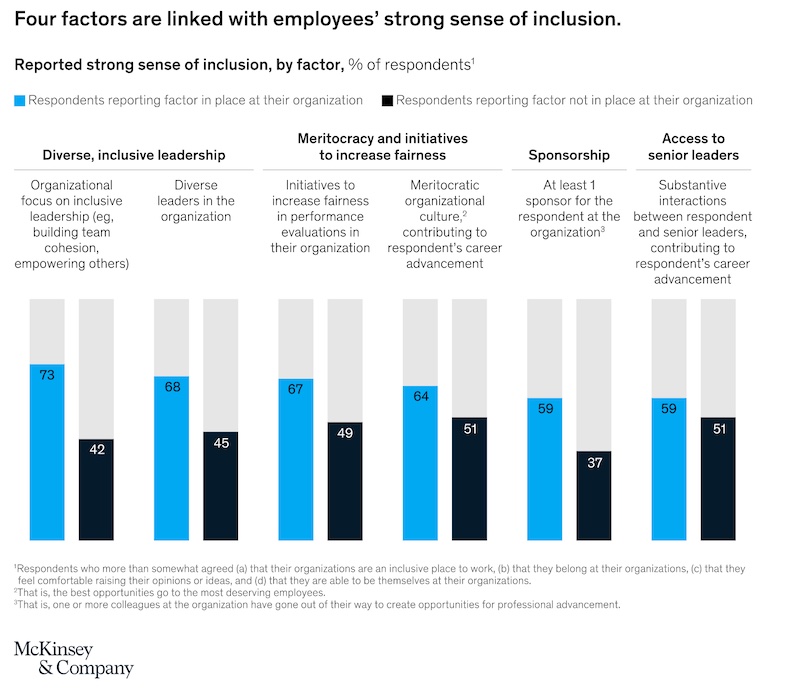The key factors linked to creating an inclusive workplace primarily involve the identity and actions of an organizations’ leaders, according to research from McKinsey & Company.
The report was based on data from a survey conducted in 2019 among 2,030 respondents who work for firms across a wide range of industries. The researchers also tested 26 organizational practices and employee experiences to see which factors are strongly linked with an individual’s sense of inclusion.
Women are less likely than men to say they feel very included; entry-level employees through vice-presidents are less likely than senior leaders to say they feel very included in their workplace; and ethnic and racial minorities are less likely to say they feel very included than non-minorities.
Though LGBTQ+ respondents are more likely to say they feel included, that may be because the survey sample for that group skewed toward more senior employees.

Some 44% of female respondents, 45% of ethnic or racial-minority respondents, and 50% of LGBTQ+ respondents say they have decided against pursuing or accepting a position because they believed the organization would not be an inclusive place to work.

The researchers identified four key factors associated with employees reporting a strong sense of inclusion at their workplace:
- Diverse, inclusive leadership (an organizational focus on inclusive leadership and diverse leaders in the organization)
- Meritocracy and initiatives to increase fairness (a meritocratic organizational culture and initiatives to increase fairness in performance evaluations)
- Sponsorship (respondents are given at least one sponsor)
- Access to senior leaders (substantive interactions between employees and senior leaders that contribute to career advancement)

About the research: The report was based on data from a survey conducted in 2019 among 2,030 respondents who work for firms across a wide range of industries. The researchers also tested 26 organizational practices and employee experiences to see which factors are strongly linked with an individual’s sense of inclusion.




